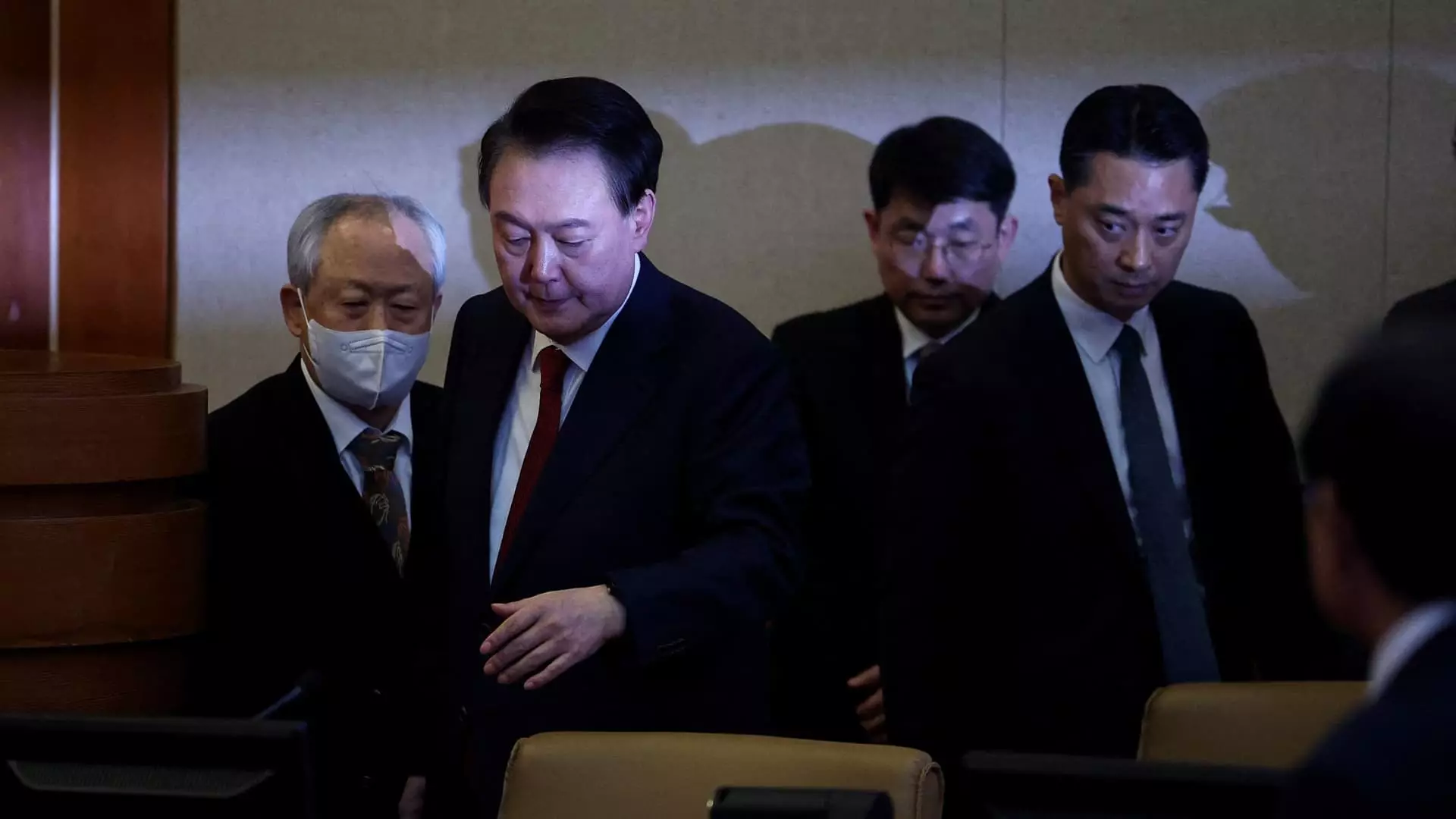In an extraordinary political upheaval, South Korea’s Constitutional Court has ratified the impeachment of President Yoon Suk Yeol, a move that has stunned the nation and sent shockwaves through the political landscape. This landmark ruling is not just a momentous legal decision; it signifies a collective repudiation of an administration that strayed dangerously from the rule of law. The unanimous decision underscores that even a sitting president is not above accountability, provoking essential discussions about the boundaries of executive power in a democratic society.
The Martial Law Misstep
Key to this impeachment saga was Yoon’s controversial declaration of martial law aimed ostensibly at combating perceived threats from North Korea and internal dissidents. Declaring martial law in a country that has spent decades painstakingly transitioning towards a robust democracy represents not only an infringement on civil liberties but also a frightening regression reminiscent of darker chapters in South Korea’s history. Most alarming is the notion that such drastic measures were taken unilaterally, under the guise of defending national security. The court’s ruling confirmed that Yoon’s declaration did not meet established legal criteria for a national crisis, raising troubling questions about his judgment and adherence to legal protocols.
Political Ramifications and Economic Outlook
The fallout from the court’s decision extends far beyond Yoon’s fate—South Korea’s political arena is teetering on the brink of a major shift. Prime Minister Han Duck-soo stepping in as acting president marks an interim phase that carries its own set of uncertainties. During this transitional period, a new presidential election must be arranged within 60 days, leaving the nation grappling with questions of leadership during a time of political vulnerability. Economically, the treasury experienced minor fluctuations; while the Kospi index dipped, the Kosdaq saw a modest increase, revealing a seemingly bifurcated response to the political turmoil. Interestingly, the South Korean won showed signs of strengthening—an inexplicable reaction that suggests confidence from investors in markets that prefer clarity over chaos, even amid upheaval.
A Cautious Path Forward
As the nation stands poised for its next electoral chapter, one must ponder what lessons can be gleaned from this tumultuous episode. For many, the surreal experience reflects a deepening skepticism toward leadership that prioritizes authoritarian measures over democratic principles. It presents a moment of reckoning for South Korean citizens: a clarion call to demand more from their elected officials and to uphold their rights against tyrannical practices dressed as national security imperatives.
The path ahead must focus on ensuring that such a breach of trust is never repeated. Voter engagement, legislative reform, and a rekindled emphasis on civil liberties must take center stage in this evolving narrative. The upheaval surrounding Yoon’s presidency is a testament to the power of the people to hold leaders accountable, but it also underlines the fragility of democracy, especially in an era marked by geopolitical tensions and domestic divisions. We find ourselves at a crossroads where the future of South Korea’s democratic resilience hangs in delicate balance.

Leave a Reply